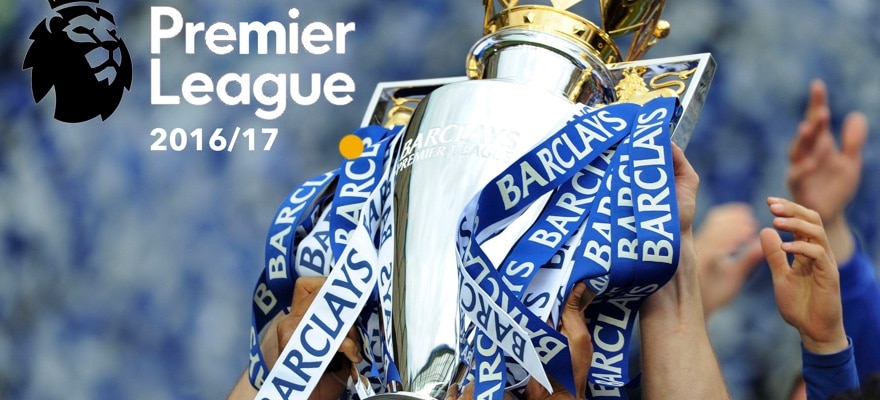The Finance Magnates London Summit is set for next week. Among the speakers coming from all niches of the trading community, Damian Comolli is something of an exception. The man credited with bringing Luis Suárez to Liverpool has made a long career as a football professional who is talented at finding world class players and is well known in the Premier League, including stints at Arsenal, Tottenham Hotspur and Liverpool.
At the event he will join a panel about jobs in FX, lending his insight into acquiring, assessing and retaining talent in a highly stressful environment. We asked him few questions about the surprising similarity of the two areas.
Don't miss your last chance to sign up for the FM London Summit. Register here!
How did you get involved with the business community?
Business people invest in football and football people who are involved in management of football clubs are keen to find out what business people are doing in terms of management style, approach to leadership, and implementing a culture.

As such, I naturally started to meet up with business people, exchanging ideas – moreover, part of my current business is also to advise potential investors who are interested in buying football clubs, which has broadened my network whilst I try to advise them on whether they should buy a club or not.
Is the experience you’ve gathered at the highest levels of British football relevant for managers in investment banking? What lessons can be learned and applied?
I certainly don’t like to give lessons to people so it’s difficult for me to say and I also come from the performance world, thus I don’t know the banking world that well.
However, what I would partake on others is that I have learned to deal with external and internal pressure as playing between 50 and 60 games over 10 months, which means having to deal with a potential PR crisis every 3 or 4 days and how to be prepared for it.
Having a strong culture is definitely a big competitive advantage
In addition, dealing with turnover of staff as well (playing staff and coaching staff) is also a valuable lesson, which means having a strong succession planning in place. I also deal with the challenge of creating and maintaining a strong culture and have continuity, commitment, and consistency within this culture. In the performance world, having a strong culture is definitely a big competitive advantage. Finally, acquiring, developing and retaining talent is a challenge in football as it is in business.
The FX trading environment is a stressful, competitive one. What’s the 'X factor' for managers to retain talent when there’s a tempting offer from a competitor on the table?
I think an X-factor is about creating a growth mindset, which will convince talented people to stay within the organization. The literature shows people don’t move for more money, they move if they don’t see the light at the end of the tunnel, if they don’t see they are going to get coaching and development which will help them get better. And they need to be convinced they all have an opportunity to move up at some point.
The strongest leadership message I have ever conveyed to my staff is 'I was wrong'
The other aspect is to create a culture where it is ok to fail. This starts with the leader admitting he's wrong when he's actually wrong. The strongest leadership message I have ever conveyed to my staff is 'I was wrong'. If people know they can make a mistake that this mistake will be debriefed' reviewed and explained, not only it will make them improve but it will also make them comfortable the organization they are part of is the right one
Bank traders’ behavior is under ever increasing surveillance and scrutiny. How can managers uproot unwarranted practices and shape organizational culture?
As stated above, its difficult for me to talk about the banking world and its unwarranted practices though what I would say about football is that it all starts with recruitment and with the individual deciding to buy into the organization, whether they’re playing or are on the coaching staff.
If the people we recruit have got the right attitude, character and personality then it becomes a lot easier to get them to buy into the culture. They will actually reinforce that culture. The football and sports world in general is moving away from only recruiting athletes based on their talent.
The first filter of recruitment has become character and personality, as in a team sport, one individual with a selfish mindset can destroy the whole team dynamic.
I always say to my recruitment staff, I’m ready to give up 10% to 20% worth of talent to make sure we get 100% worth of character. Meaning if between 2 players 1 fits the bill 100% in terms of talent but only 80% in terms of character and another one is 100% in terms of character but only 80% of what we need in terms of skills, we will go for the latter.
What is the question you hear the most from businesspeople you meet? What do you answer?
No matter what business it is and no matter what country I'm in, it always comes back to the challenge of recruiting the right people, developing them and retaining them. Business people want to know how it’s being done in sports. As said above, my answer is make sure you recruit the right individual for your culture before looking at his skills set.
And the only way to keep them is by giving them the feeling the organization will make them better. That’s particularly true with millennials.


















